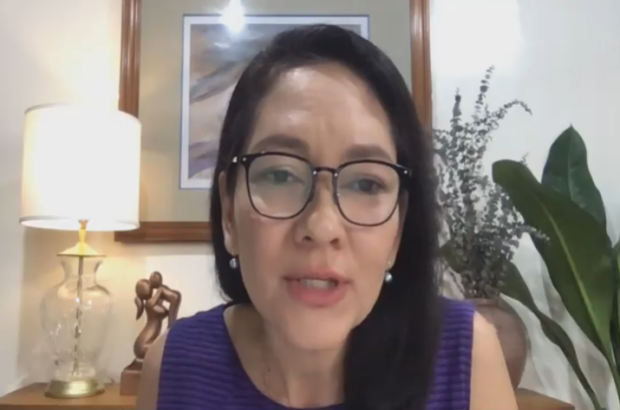
Sen. Risa Hontiveros. File photo / Screen grab from Senate PRIB
MANILA, Philippines — Senator Risa Hontiveros has filed a bill seeking to strengthen the protection of children against online sexual abuse and exploitation.
Hontiveros filed Senate Bill No. 2068 or the proposed Anti-Online Sexual Abuse and Exploitation of Children Law or Anti-OSAEC Law.
The bill seeks to amend the Anti-Child Pornography Act of 2009 and the Anti-Photo and Video Voyeurism Act of 2009.
Hontiveros said these existing laws do not capture the “extraordinary features” of OSAEC and “these are not responsive to the protection needed by using the internet.”
“Even before the rise of technological advances, our country has been a destination for sexual offenders, who would target or manipulate women and children, especially those from impoverished areas,” said the senator, who chairs the Senate Senate Committee on Women, Children, Family Relations and Gender Equality.
“Matagal nang nagiging biktima ang ating kababaihan at kabataan. Pinalala lang ng social media at internet,” she added.
(Our women and children have long been victims of this crime. Social media and the internet worsens their plight.)
She cited the International Justice Mission which said that 86 percent of online sexual exploitation of children victims are female while 14 percent are male.
IJM, according to the senator, also revealed that OSAEC is a family-based crime, with the majority of the customers coming from Western countries.
“Dapat malutas narin natin ang puno at dulo ng transaksyong ito: ang kahirapan,” she said.
(We should also solve the root of why such transactions happen: poverty.)
“Walang mapipilitang magbenta ng mga anak nila kung may maaayos at disenteng mga trabaho sa bansa,” she added.
(No one would be forced to sell their children if there are enough decent paying jobs in the country.)
Hontiveros’ bill seeks to penalize those who willfully subscribe to, join or support an internet address that hosts OSAEC content.
Those who hire, employ, or pay a facilitator to stream sexual abuse of children as well as individuals who “knowingly benefit” from the commission of OSAEC are also penalized under the proposed law.
Duties and responsibilities are also introduced for Internet Service Providers (ISPs), social media networks, financial institutions and intermediaries, and establishments or facilities used for OSAEC, according to Hontiveros.